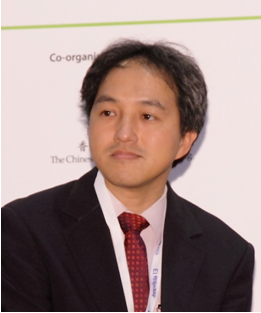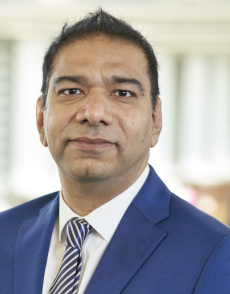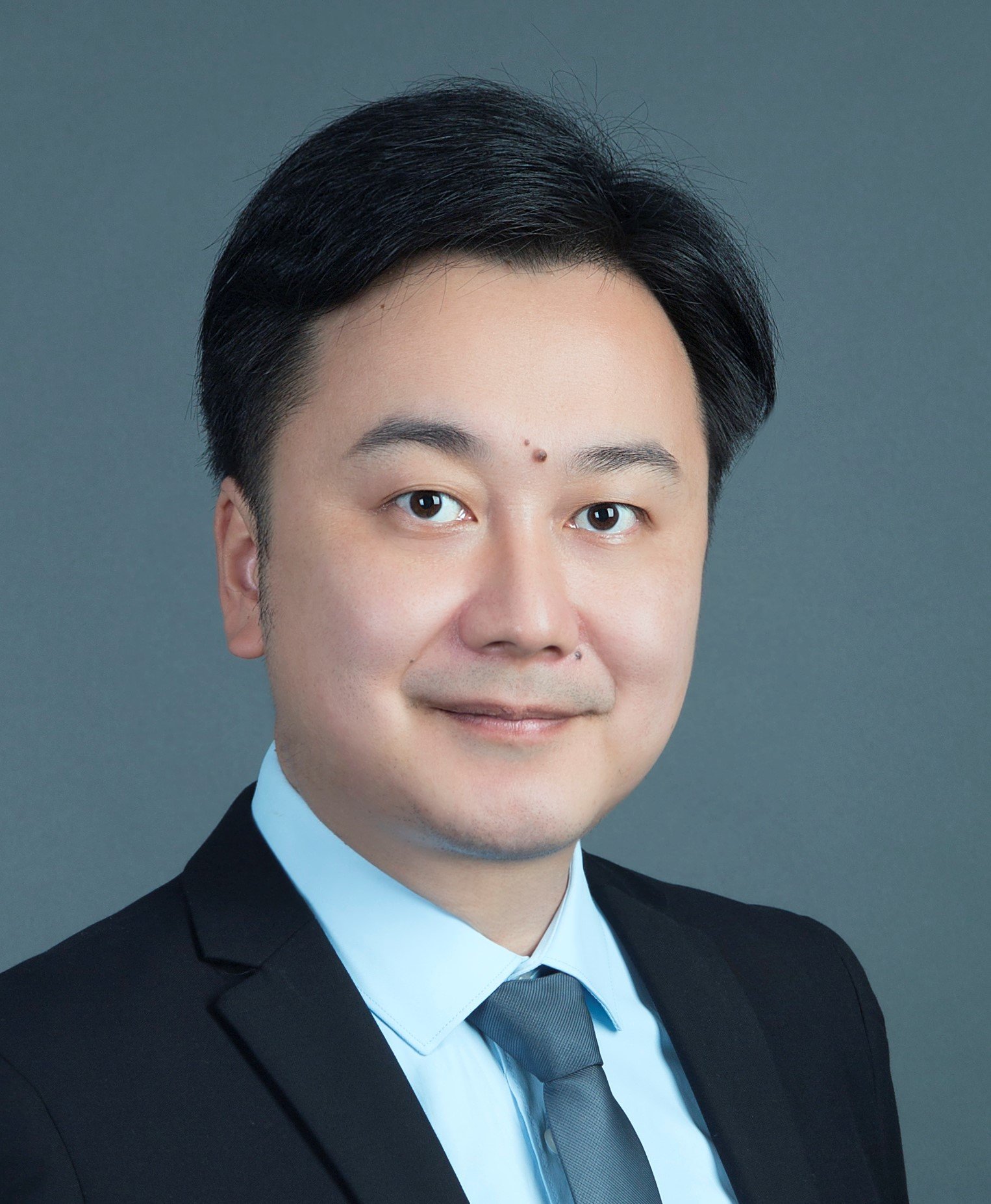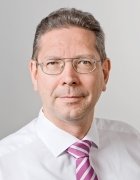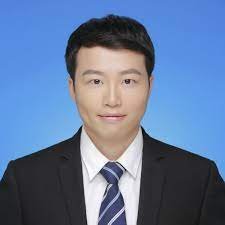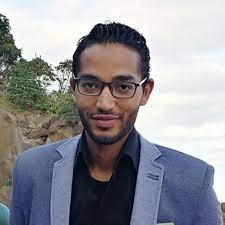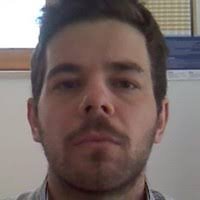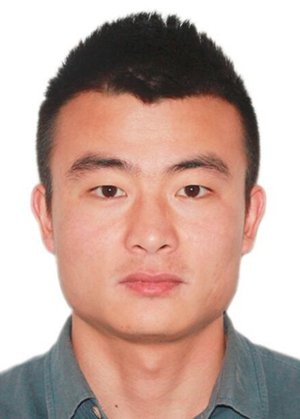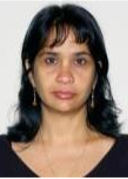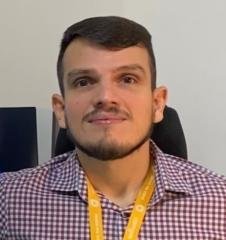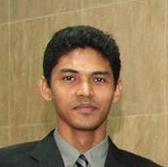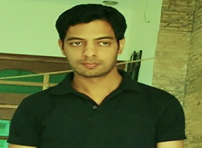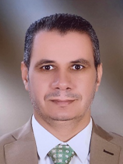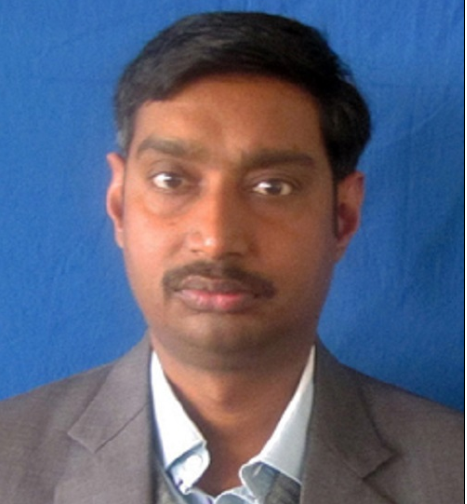Speakers
Meet our Plenary Speakers
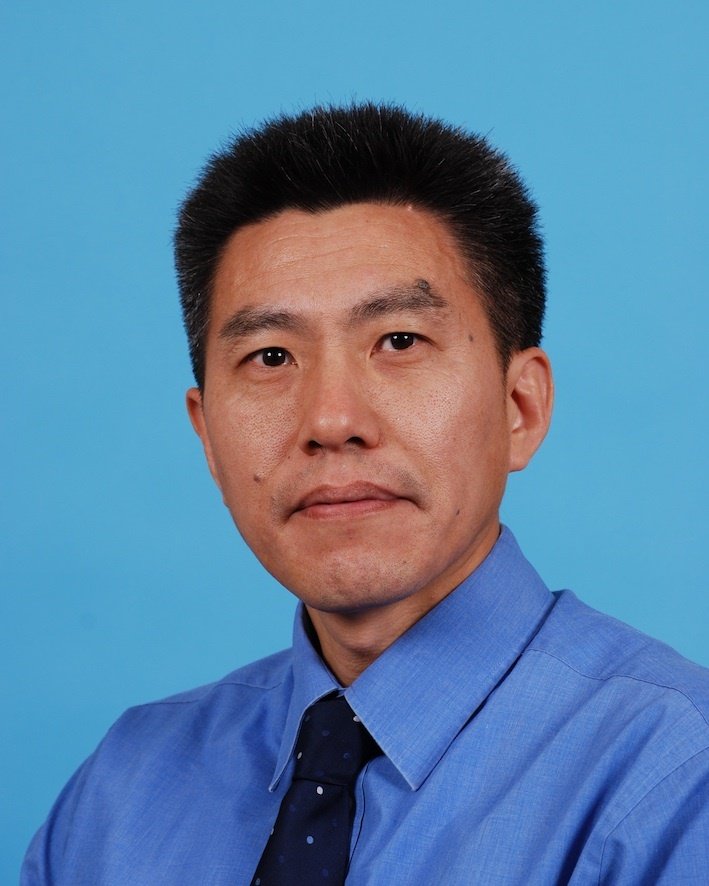
Prof. Zhengtao Ding
Biography
Zhengtao Ding received B.Eng. degree from Tsinghua University, Beijing, China, and M.Sc. degree in systems and control, and the Ph.D. degree in control systems from the University of Manchester Institute of Science and Technology, Manchester, U.K. After working in Singapore for ten years, he joined the University of Manchester in 2003, where he is currently Professor of Control Systems, and the Head of Control and Robotics Group. He is the author of the book: Nonlinear and Adaptive Control Systems (IET, 2013), and a co-author of two other books, and has published over 300 research articles. His research interests include nonlinear and adaptive control theory and their applications, more recently on distributed optimization and distributed machine learning, with applications to power systems and robotics. Prof. Ding has served as the Subject Chef Editor of Nonlinear Control for Frontiers, and Associate Editor for the IEEE Transactions on Automatic Control, IEEE Control Systems Letters, and several other journals. He is a member of IEEE Technical Committee on Nonlinear Systems and Control, IEEE Technical Committee on Intelligent Control, and IFAC Technical Committee on Adaptive and Learning Systems.

Prof. Ling Guan
Biography
Dr. Ling Guan is a professor of Electrical and Computer Engineering at Ryerson University, Toronto, Canada, and Tier I Canada Research Chair in Multimedia and Computer Technology. He held visiting positions at Princeton University, Tokyo Institute of Technology, British Telecom, and Microsoft Research Asia. Dr. Guan has published extensively in machine learning, multimedia processing, human-centered computing, and adaptive image and video processing. He is a Fellow of the IEEE, an Elected Member of the Canadian Academy of Engineering, and an IEEE Circuits and System Society Distinguished Lecturer. Dr. Guan’s work has been honored by numerous awards, including the 2014 IEEE Canada C.C. Gotlieb Computer Medal for Technical Achievement in Computer Science and Engineering and the 2005 IEEE Transactions on Circuits and Systems for Video Technology Best Paper Award. Dr. Guan received his Ph.D. Degree from the University of British Columbia.
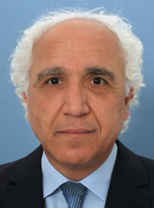
Prof. Alireza Baghai-Wadji
Biography
Alireza Baghai-Wadji is Professor Emeritus at University of Cape Town (UCT), South Africa. He holds M.Sc. and Ph.D. degrees in telecommunication engineering, and the D.Sc. (Doctor of Science) degree in physical electronics from the Vienna University of Technology, Austria. He has also been honored with the D.Sc. degree in materials science and quantum physics from Aalto University, Finland. Since 2012 he has been with University of Cape Town. He was ECE Program Director, chaired the EE curriculum development, and was Assistant Dean (internationalization) with UCT. He was 2005–2012 Professor, Discipline Head, Senior Member of the Platform Technologies Research Institute, and International Representative with Royal Melbourne Institute of Technology University, Australia. From 1997–2005 he was Associate Professor with Vienna University of Technology. He has lived on five continents and occupied senior academic, executive, and principal engineering consultancy positions, invariably promoting rigorous and creative thinking, and advocating for a system-of-systems approach to STEM development and problem solving: Distinguished Visiting Professor with BIT, Beijing, China; High-level Foreign Expert Visiting Professor with XUST, Xian, China. Visiting Professor with Aalto University, Finland; Visiting Scientist with Max Planck Institute (Quantum Optics), Germany; Visiting Professor with IHPC and Senior Member with IMS, NUS, Singapore; Visiting Scientist with UCI, CA, USA; Adjunct Professor with ASU, AZ, USA; and Director of Aerospace and Aviation Electronics Program with Sir Lawrence Wackett Aerospace Centre, Australia. He was Principal Engineering Consultant with Motorola, USA; CTS, USA; EPCOS, Germany; Siemens Matsushita, Austria; and Siemens, Germany. He was an award-winning Nokia Fellow. He was awarded the prestigious Austrian Kurt Goedel Fellowship three times. Since 1997 he has been an Associate Editor for IEEE Transactions on Ultrasonics, Ferroelectrics, and Frequency Control (UFFC). He was twice Guest Editor for the IEEE T-UFFC. He is the current UFFC-S Representative to the Transaction on Quantum Engineering. Since 2019 he has been an Associate Editor for the Applied Computational Electromagnetic Society (ACES). He has authored more than 200 peer-reviewed articles in journals and conference proceedings, and delivered more than 120 invited, plenary, and keynote speeches. He is the owner of one patent in the USA. He has instructed 33 half-day or full-day short courses sponsored by IEEE or ACES. His original contributions to mathematical physics include the unified diagonalization and supplementation of multi-scale, multi-physics strongly coupled system of thermoacousto-electro-magnetic partial differential equations, the design of physics-based Dirac-like generalized functions, the development of regularization techniques in the near- and far-fields, the design of problem-tailored basis, dual basis, frames, dual frames, and Green’s functions-induced wavelets. He is credited for developing the Taylor Transform and Inverse Transform (TTIT). He is Honorary Member and Fellow of Electromagnetics Academy, USA, and has been listed in Who-is-Who in Electromagnetics. He is Honorary Professor at Amity University, Noida, India, and Adjunct Professor at Vellore Institute of Technology, Vellore, Tamil Nadu, India.
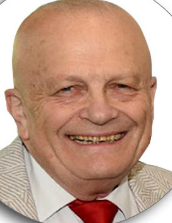
Prof. Len Gelman
Biography
Len Gelman, PhD, Dr. of Sciences (Habilitation) joined Huddersfield University as a Professor, Chair in Signal Processing/Condition Monitoring and Director of Centre for Efficiency and Performance Engineering, in 2017 from Cranfield University, where he worked as Professor and Chair in Vibro-Acoustical Monitoring since 2002. Len published more than 250 publications, 17 patents and is Co-Editor of 12 Springer books. He is Fellow of: British Institute of NDT, International Association of Engineers and Institution of Diagnostic Engineers, Executive Director, International Society for Condition Monitoring, Editor-in-Chief, International Journal of Engineering Sciences (SCMR), Chair, annual International Condition Monitoring Conferences, Honorary Co-Chair, annual World Congresses of Engineering, Co-Chair, International Congress COMADEM 2019 and Chair, International Scientific Committee of Third World Congress, Condition Monitoring. Len is Editorial Board member of the International Journal “Electronicsâ€, the International Journal “Sensorsâ€, the International Journal “Energiesâ€, the International Journal “Insightâ€, the International Journal of Acoustics and Vibration, the International Journal of Prognostics and Health Management, the International Journal of Basic and Applied Sciences, the International Journal Vibration and Acoustics Research and the International Journal Signal, Image and Video Processing. Len is Chair of International CM Groups of ICNDT and EFNDT and Member of ISO Technical Committee, Condition Monitoring. Len made 42 plenary keynotes at major international conferences. He received two Rolls-Royce (UK) Awards for Innovation, COMADIT Prize (by British Institute of NDT) for significant contribution through research/development in condition monitoring, Oxford Academic Health Science Network Award, William Smith Prize by UK Institution of Mechanical Engineers and USA Navy Award.
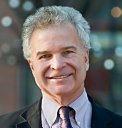
Prof. H. Eugene Stanley
Biography
Gene Stanley was born in Oklahoma City and obtained his B.A. in physics at Wesleyan University in 1962. He performed biological physics research with Max Delbrueck in 1963 (funded by a Fulbright in Germany) and was awarded the Ph.D. in physics at Harvard in 1967 after completing a thesis on critical phenomena in magnetic systems under the guidance of T. A. Kaplan and J. H. Van Vleck. Stanley was a Miller Fellow at Berkeley with C. Kittel, where he wrote an Oxford monograph, INTRODUCTION TO PHASE TRANSITIONS AND CRITICAL PHENOMENA, which won the Choice Award for Outstanding Academic Book of 1971. He was appointed Assistant Professor of Physics at MIT in 1969 and was promoted to Associate Professor in 1971. He was appointed Herman von Helmholtz Associate Professor in 1973 in recognition of his interdepartmental teaching and research with the Harvard-MIT Program in Health Sciences and Technology. In 1976 Stanley joined Boston University as Professor of Physics and Associate Professor of Physiology (in the School of Medicine). In 1978 and 1979, he was promoted to Professor of Physiology and University Professor, respectively. In 2007 he was offered joint appointments with the Chemistry and Biomedical Engineering Departments. He is currently honorary professor at the Institute for Advanced Studies, University of Pavia, and at Eotvos Lorand University, Budapest. Stanley works in collaboration with students and colleagues attempting to understand puzzles of interdisciplinary science. His main current focus is understanding the anomalous behavior of liquid water in bulk, nanoconfined, and biological environments. He has also worked on a range of other topics in complex systems, such as quantifying correlations among the constituents of the Alzheimer brain, and quantifying fluctuations in noncoding and coding DNA sequences, interbeat intervals of the healthy and diseased heart. His publications have received 38,537 citations [31,968 to articles and 6569 to books] his “Hirsch index is 90â€:http://argento.bu.edu/hes/articles/highlycited.html. Two of his papers were reproduced in THE PHYSICAL REVIEW, THE FIRST HUNDRED YEARS: A SELECTION OF SEMINAL PAPERS AND COMMENTARIES. Stanley has been elected to the US National Academy of Sciences, the Brazilian Academy of Sciences, and is an Honorary Member of the Hungarian Physical Society and an Honorary Professor at Eotvos Lorand University (Budapest). Stanley received the Boltzmann Medal, given by the International Union of Pure and Applied Physics (IUPAP), and the Teresiana Medal in Complex Systems Research given by the University of Pavia. He also received the “Distinguished Teaching Scholar†Director’s Award from the National Science Foundation, the APS Nicholson Medal for Human Outreach, a Guggenheim Memorial Fellowship, the David Turnbull Prize, a BP Venture Research Award, the Floyd K. Richtmyer Memorial Lectureship Award, the Memory Ride Award for Alzheimer Research, and the Massachusetts Professor of the Year awarded by the Council for Advancement and Support of Education. He has received five Doctorates Honoris Causa, from Bar-Ilan University, Eotvos Lorand University (Budapest), The University of Liege, The University of Dortmund, and The University of Wroclaw. Stanley has served as thesis advisor to 96 Ph.D. candidates at MIT and Boston University, and has worked with 106 research associates. With Nicole Ostrowsky, Stanley co-founded a series of NATO Advanced Study Institutes in interdisciplinary physics in Cargese (in 1985, 1988, and 1990), he co-directed the 1996, 2003, and 2009 Enrico Fermi Schools of Physics on Complex Systems, and he chaired the 1998 Gordon Conference on Water and the 1986 IUPAP International Conference on Statistical Mechanics, Statphys16. Stanley serves on the International Jury for the 500,000 euro “Women in Science†L’Oreal-UNESCO Prize. He is chair of the NAS/Keck Futures Initiative on Complexity, and is an active member of the NAS Committee Forefronts of Science at the Interface of Physical and Life Sciences, charged with finding ways for fostering useful collaborations between physicists and life scientists, He also serves on two NAS committees concerned with threat networks and threatened networks.

Prof. Sunil Kumar
Biography
Dr. Sunil Kumar received his B.E. (Electronics Engineering) from National Institute of Technology, Surat (India) in 1988, and the M.E. and Ph.D. degrees in Electrical and Electronics Engineering from the Birla Institute of Technology and Science (BITS), Pilani (India) in 1993 and 1997, respectively. From 1997 to 2002, Dr. Kumar was a postdoctoral researcher and adjunct faculty in the Integrated Media Systems Center and Electrical & Computer Engineering Department at the University of Southern California, Los Angeles. During 2000 to 2002, he also worked as a consultant in industry on video compression standards. Currently, Dr. Kumar is a Professor and Thomas G. Pine Faculty Fellow in the Electrical and Computer Engineering Department at San Diego State University (SDSU), San Diego, California. Prior to this, he served as an Assistant Professor in the Electrical and Computer Engineering Department at Clarkson University, Potsdam, NY (2002 – 2006). He was a Visiting Professor (in 2014) and ASEE Summer Faculty Fellow at the U. S. Air Force Research Laboratory in Rome, NY, (in summer of 2007, 2008 and 2017), where he conducted research in airborne and directional wireless networks. Dr. Kumar is a recipient of several awards and honors, including the Distinguished Alumnus Award (2019) from his alma mater NIT (Surat, India), SDSU Alumni Outstanding Faculty Award (2015) and President’s Leadership Fund Award for Faculty Excellence (2012). He is a senior member of IEEE and has published more than 160 research articles in international journals and conferences, 7 books/book chapters, and several U.S. invention disclosures. He serves on the technical program committee of many conferences and has organized special sessions and workshops in various conferences. He has received over $5M in external research funding from the National Science Foundation, U.S. Air Force Research Lab, Department of Energy, California Energy Commission, Cisco, and Sprint Advanced Technology Labs. Dr. Kumar's research interests include (i) QoS-aware and cross-layer protocols for wireless ad hoc, mesh, airborne, sensor, cognitive radio, and cellular networks, including directional communication and spectrum resource optimization, (ii) Error resilient multimedia compression techniques for wireless transmission, including HEVC, H.264/AVC and JPEG2000, and (iii) applications of machine learning techniques in wireless networks.

Dr. Saqer S. Aljaafreh
Biography
Dr. Saqer Alja'Afreh, Mutah University, Jordan He received BSc and MSc degrees in Electrical Engineering/Communications Engineering from Mutah University, Jordan, in 2004 and 2007, respectively. In 2015 he received the PhD degree in Electrical and Electronics Engineering from the University of Liverpool, United Kingdom. He has been conducting research in the areas of antennas design for wireless applications (3G 4G 5G, Wi-Fi, MIMO antennas) since 2012. He has been a lecturer at Mutah University from 2009 to 2012. Currently, he is an associate professor in the Department of Electric Engineering at Mutah University since 2015. His research interests are in the areas of MIMO and diversity antennas for recent wireless and mobile applications, dielectric resonator antennas, planar antennas and microwave circuits, ambient RF energy harvesting. His work has been published around 60 research papers in indexed Journals and international conferences. He received several national and international granted projects as a PI and a Co-PI. He awarded the guest visit award from DFG/Germany in summer 2018. From Feb 2020 to Sept 2020, he was a visitor professor at the University of Liverpool. He is a reviewer for tens of leading international Journals. Recent Development in 5G Antennas Design based-on Substrate Integrated Waveguide (SIW) The fifth-generation (5G) communication systems represents the latest development in wireless and mobile communication technologies. Unlike ex-generations of mobile communications, 5G employ both millimeter wave (mm-wave) bands for the purpose of high data rate and low latency, while it uses microwave band (sub-6 GHz) for the purpose of excellent radio coverage. In order to maintain isolated antennas having compact size for current and future hand-portable devices, substrate integrated waveguide antennas (SIW) represent promising candidate that can meet current challenges in 5G antennas design. As an example, shared aperture antennas using dualmode composite concept attracts antenna designers currently. Additionally, the shorting vias in SIW structure simplify the isolation process between highly-dense MIMO antennas. This talk will review recent developments in SIW-based antennas for modern 5G applications.
